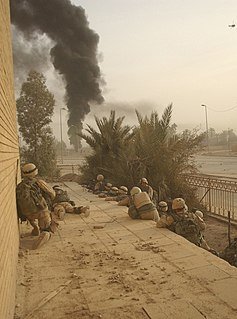2003: Invasion of Iraq
In the early 2000s, tensions were high between the United States and Iraq. The United States, along with its allies the United Kingdom, Australia, and Poland, believed that Iraq possessed weapons of mass destruction (WMDs) and posed a threat to global security. On March 20, 2003, these countries launched a military invasion of Iraq with the objective of disarming Iraq of its alleged WMDs, ending Saddam Hussein’s regime, and establishing a democratic state.
The decision to invade Iraq was met with both support and opposition. Supporters argued that removing Saddam Hussein from power would bring stability to the region and prevent the potential use of WMDs. They also believed that establishing a democratic government in Iraq would promote peace and democracy in the Middle East. On the other hand, critics questioned the evidence of Iraq’s possession of WMDs and argued that the invasion was driven by ulterior motives, such as control over Iraq’s oil resources.
Controversy and International Relations
The invasion of Iraq in 2003 had significant consequences for international relations. The lack of conclusive evidence regarding Iraq’s possession of WMDs led to widespread controversy and criticism. Many countries, including France, Germany, and Russia, opposed the invasion and called for a diplomatic solution to the Iraq crisis. The United Nations Security Council was divided on the issue, with some members supporting military action and others advocating for continued inspections and diplomacy.
The invasion also strained relations between the United States and its traditional allies. The United Kingdom, under Prime Minister Tony Blair, was a staunch supporter of the invasion and contributed troops to the coalition forces. However, this decision was met with significant opposition within the UK, leading to protests and political divisions. Australia, led by Prime Minister John Howard, also joined the coalition forces, while Poland provided a contingent of troops.
As the war in Iraq unfolded, it became clear that the intelligence regarding Iraq’s WMDs was flawed. No substantial evidence of WMDs was found, leading to accusations that the invasion was based on false pretenses. This revelation further damaged the credibility of the United States and its allies, undermining their position in the international community.
Human Cost and Political Instability
The invasion of Iraq resulted in a significant loss of life and widespread destruction. Iraqi civilians bore the brunt of the violence, with estimates of civilian deaths ranging from tens of thousands to over a hundred thousand. The war also led to the displacement of millions of Iraqis, exacerbating an already fragile humanitarian situation.
The removal of Saddam Hussein’s regime created a power vacuum in Iraq, leading to political instability and sectarian violence. The country descended into a protracted insurgency, with various factions vying for control and carrying out acts of terrorism. The presence of foreign troops further fueled anti-occupation sentiments and contributed to the rise of extremist groups, such as Al-Qaeda in Iraq.
The consequences of the invasion of Iraq are still felt today. The war and its aftermath have had a profound impact on Middle Eastern geopolitics, contributing to the rise of ISIS and the ongoing conflicts in the region. The invasion also strained relations between the United States and other countries, particularly in the Middle East, and eroded trust in the intelligence assessments of Western powers.
Despite the initial objectives of the invasion, Iraq did not become a stable democracy. Instead, it faced years of political turmoil, sectarian violence, and insurgency. The legacy of the invasion continues to shape Iraq’s political landscape and poses challenges for its future stability.
For more information on the 2003 invasion of Iraq, you can refer to the following external references:
- BBC – Iraq War: The Invasion of Iraq
- History.com – 2003 Invasion of Iraq
- Council on Foreign Relations – Iraq War

